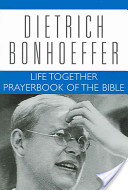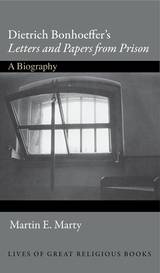
Preface
Click here for Who Am I? Dietrich Bonhoeffer as a Historical Mentor in Prayer: Part 1, here for Part II (focused upon Bonhoeffer’s historical context), and here for Part III (focused on Bonhoeffer’s theological reflection). As you consider Praying the Psalms as part of a rule of life, reflect upon
- what it means that Jesus the Christ is the Lord of your head, heart, and hands in all aspects of life (including vocation).
- how often and how thoroughly do you pray through the Psalms individually and/or in your Christian tradition?
- how have you found Bonhoeffer’s “theology is interwoven with the course of his life” (Bethge 1997, viii)? How do his actions in Nazi resistance agree/disagree with his way of life, walk with God? In the end, do you find Bonhoeffer a historical mentor in prayer or not?
Who Am I? – Praying the Psalms as part of a rule of life
Bonhoeffer developed a rule of life[1], informed by “pre-Reformation Christian thought, liturgy, and liturgical renewal, and some features of Catholic philosophy” (Marty, 156), which sustained him even in the darkest hours. In his opening lecture at Finkenwalde Seminary, Bonhoeffer offered a “new monasticism”:
The brethren of the community live together with a strict liturgical ordering of their day. They are guided through the day not by cultic forms, but by the word of the Bible and by prayer. They are bound together by brotherly admonition and discipline and by open confession. A common theological and ecclesiastical consideration of preaching and the word of God in the Bible will keep them down-to-earth and practical. Renouncing everything except the simple necessities, they take upon themselves to lead a common life. The director of the community will assign to each brother his particular work. Here the position is envisaged to being like that of a house of deaconesses. The brethren, living in this ordered community and being supported by it, put themselves at the service of the church, to follow any call that may come to them. . . .
We have learnt here to read the Bible once again prayerfully. That is the significance of our morning and evening devotions in which we hear the word of the Bible continuously. After we have read a psalm together, each of the brethren in turn reads one passage from the Old Testament and one from the New, interspersed with verses from hymns and leading up to a free prayer and the Our Father said together. In the daily period for meditation we consider a fairly short biblical text appointed for the whole week. In the morning we listen to lectures . . . which end with a discussion. Half an hour’s singing of chorales ends the morning’s work. . . .
It is the Lord’s Supper, however that has been the chief means of bringing us together. Confession and brotherly talk together have become our necessary and most important preparation for this (The Way to Freedom: Letters, Lectures and Notes 1935-1939 1966, 29, 31-32, 35, bold added by author).

After the Gestapo closed Finkenwalde, Bonhoeffer published Psalms: The prayer book of the Bible to pass along the practice to fellow believers in the tradition of Luther. He quotes Luther, “[The Psalter] penetrates the Lord’s Prayer and the Lord’s Prayer penetrates it, so that it is possible to understand one on the basis of the other and to bring them into joyful harmony” (Psalms, 16). Bonhoeffer’s emphasis on the importance of the prayers which Jesus prayed to the life of the Nazi era church in Germany led to end of his ability to publish, i.e., a ban upon his publishing. But his summary, “David . . . prays, Christ prays, we pray” (21) transcends his day.
Bonhoeffer begins Psalms with the disciples’ request “Lord, teach us to pray!” (Luke 11:1) and a warning against the “dangerous error” of letting the heart “pray by itself” (9). According to Bonhoeffer, “How do we learn to pray?”
When our will wholeheartedly enters in to the prayer of Christ, then we pray correctly. Only in Jesus Christ are we able to pray, and with him we also know that we shall be heard.
The child learns to speak because his father speaks to him. He learns the speech of the father. So we learn to speak to God because God has spoken and speaks to us. By means of the speech of the Father in heaven his children learn to speak with him. Repeating God’s own words, we begin to pray to him. We ought to speak to God and he wants to hear us, not in the false and confused language of our heart, but in the clear and pure speech which God has spoken to us in Jesus Christ (11).
As we learn to pray through “Jesus Christ, the Word of God,” what better place to turn to than the “prayerbook in the Bible. The Holy Scripture is the Word of God to us. . . . the Bible is the Word of God even in the Psalms” (13). In the face of the unique challenges of his day, Bonhoeffer advances the value of the Old Testament, and the Psalms in particular, for study and devotion. The argument for the disciplined use of the Psalms as a prayer book to nurture a close relationship with God no matter the circumstances, applies no matter the era of the church. With regard to the focus of prayer he writes:
If we are to pray aright, perhaps it is quite necessary that we pray contrary to our own heart. Not what we want to pray is important, but what God wants us to pray. If we were dependent entirely on ourselves, we would probably pray only the fourth petition of the Lord’s Prayer. But God wants it otherwise. The richness of the Word of God ought to determine our prayer, not poverty of our heart (15).
As to the value of their regular reading and singing he writes:
In many churches the Psalms are read or sung every Sunday, or even daily, in succession. These churches have a priceless treasure, for only with daily use does one appropriate this divine prayerbook. When read only occasionally, these prayers are too overwhelming in design and power and tend to turn us back to more palatable fare. . . . Therefore, wherever we no longer pray the Psalms in our churches, we must take up the Psalter that much more in our daily morning and evening prayers, reading and praying together at least several Psalms every day so that we succeed in reading through this book a number of times each year, getting into it deeper and deeper. . . . Wherever the Psalter is abandoned, an incomparable treasure vanishes from the Christian church. With its recovery will come unsuspected power (25 – 26).
Through the rest of the book, Bonhoeffer explores a number of topics including the classification of the Psalms and how they address key teachings of the church. With regard to the praying the imprecatory Psalms he points the Christ-follower to the forgiveness of the enemies of God through the cross, “Thus the carrying out of vengeance becomes grace for all men in Jesus Christ” (59). Bonhoeffer concludes with “The Blessing of the Morning Prayer”:
The entire day receives order and discipline when it acquires unity. This unity must be sought and found in morning prayer. It is confirmed in work. The morning prayer determines the day. Squandered time of which we are ashamed, temptations to which we succumb, weaknesses and lack of courage in work, disorganization and lack of discipline in our thoughts and in our conversation with other men, all have their origin most often in the neglect of morning prayer. . . . Temptations which accompany the working day will be conquered on the basis of the morning breakthrough to God. Decisions, demanded by work, become easier and simpler where they are made not in fear of men by only in the sight of God. “Whatever your task, work heartily, as serving the Lord and not men” (Colossians 3:23). Even mechanical work is done in a more patient way if it arises from the recognition of God and his command. The powers to work take hold, Therefore, at the place where we have prayed to God. He wants to give us today the power which we need for our work (64-65).

In Life Together, Bonhoeffer refers to the Psalter as “the school of prayer” (1954, 47) and provides the nuggets of ideas, including “The Psalter is the vicarious prayer of Christ for his Church” (46). This teaching receives greater attention in Psalms. In addition to descriptions of the practice of praying the Psalms, his main three points are that in the Psalter we learn what prayer means, what we should pray (including the imprecatory Psalms with the recognition that Christ is praying them through us), and to pray as a fellowship (47-48). Additional material on praying the Psalms is found in Meditating on the Word.

Marty comments on the “old piety” found in the Letters and papers from prison, “The author almost reflexively lived by the rhythms of the church year and recited classic Lutheran hymns to himself in his cell. His family, his mother especially, needed comfort” (56). Passages in Letters and papers from prison which refer to the praying of the Psalms include:
I read the Psalms every day, as I have done for years; I know them and love them more than any other book. I cannot now read Psalms 3, 47, 70 and others without hearing them in the settings of Heinrich Schutz. It was Renate who introduced me to his music, and I count it one of the greatest enrichments of my life (40).
For the first twelve days, during which I was segregated and treated as a felon – up to now the cells on each side of me have been occupied solely by handcuffed men awaiting death – Paul Gerhardt was an unexpectedly helpful standby, and so were the Psalms and Revelation (128).
In addition to the prayers for fellow prisoners which read like Psalms[2], one finds significant parts of Letters and papers from prison reading like the Psalms as Bonhoeffer has rich conversation with family, friends, colleagues, the people of God, and God himself[3]. As Lawrence S. Cunningham, one of the most noted Catholic commentators on sainthood and saints, writes, “What strikes one about a Dietrich Bonhoeffer is not that he died at the hands of the Gestapo but that he reflected, prayed, wrote, counseled, and lived under the extreme circumstance of a Gestapo regime” (Marty, 147).
Conclusion to the series
Who Am I? Bonhoeffer as a Historical Mentor in Prayer
Dietrich Bonhoeffer’s “theology is interwoven with the course of his life” (Bethge 1997, viii). In the end we find a man whose heart was after the ways of God in the face of a complex and challenging culture. The daily practice of dwelling in and receiving guidance from the Word of God, with an emphasis on praying the Psalms with and in Christ, brought life in the Spirit which couldn’t be missed by those he served with “righteous action.” Christ continues to shown to be the Lord of all of life and the world no matter who declares their authority as ultimate.
As Bonhoeffer, may the people of God today heartily embrace the daily practice of a “rule of life” which includes regular meditation upon the Word of God including the prayer book of the Bible. Although some Evangelicals may challenge using the Psalms as a daily prayer book to begin one’s day too Old Testament, too mindlessly repetitious, too “Roman Catholic,” and/or too laden with imprecatory material, instead one finds joy in the continuing fulfillment of the prayers of the Psalms in Jesus the Christ. Jesus the Christ transforms his people into “little Christs” guided by His Word and prayer in “righteous action.” May the people of God be guided by the creative Word of God through all life situations. Whether one feels close to God or not at a given moment, the discipline of praying the Psalms transforms one more and more into who one was created to be in the image of God, thereby enabling one to echo Bonhoeffer when facing one’s final days on earth, “This is the end, for me the beginning of life” (Bethge, 84). To God be the glory!
Note: Sources Consulted for the whole project.
Stay tuned for additional consideration of Psalms: The Prayer Book of the Bible.
Footnotes
- In Spiritual Theology: A Systematic Study of the Christian Life (InterVarsity Press, 1998), Simon Chan writes, “A rule of life is not about observing a set of rules in order to make ourselves good and acceptable before God – that would be legalism. Rather, it is about living a life under a certain pattern of discipline in order to achieve ascetical proficiency. . . . To embrace a rule is to make a commitment to a certain pattern of living that helps reinforce desirable habits in the long term” (190, 192). ↩
- E.g., Letters and papers from prison, 139-143. ↩
- E.g., Who am I? and By kindly powers surrounded. ↩
Tom enjoys daily conversations regarding living out the Biblical Story with his wife Theresa and their four girls, around the block, at Elizabethtown Brethren in Christ Church (where he teaches adult electives and co-leads a small group), among healthcare professionals as the Northeast Regional Director for the Christian Medical & Dental Associations (CMDA), and in higher ed as a volunteer with the Emerging Scholars Network (ESN). For a number of years, the Christian Medical Society / CMDA at Penn State College of Medicine was the hub of his ministry with CMDA. Note: Tom served with InterVarsity Christian Fellowship / USA for 20+ years, including 6+ years as the Associate Director of ESN. He has written for the ESN blog from its launch in August 2008. He has studied Biology (B.S.), Higher Education (M.A.), Spiritual Direction (Certificate), Spiritual Formation (M.A.R.), Ministry to Emerging Generations (D.Min.). To God be the glory!

Leave a Reply